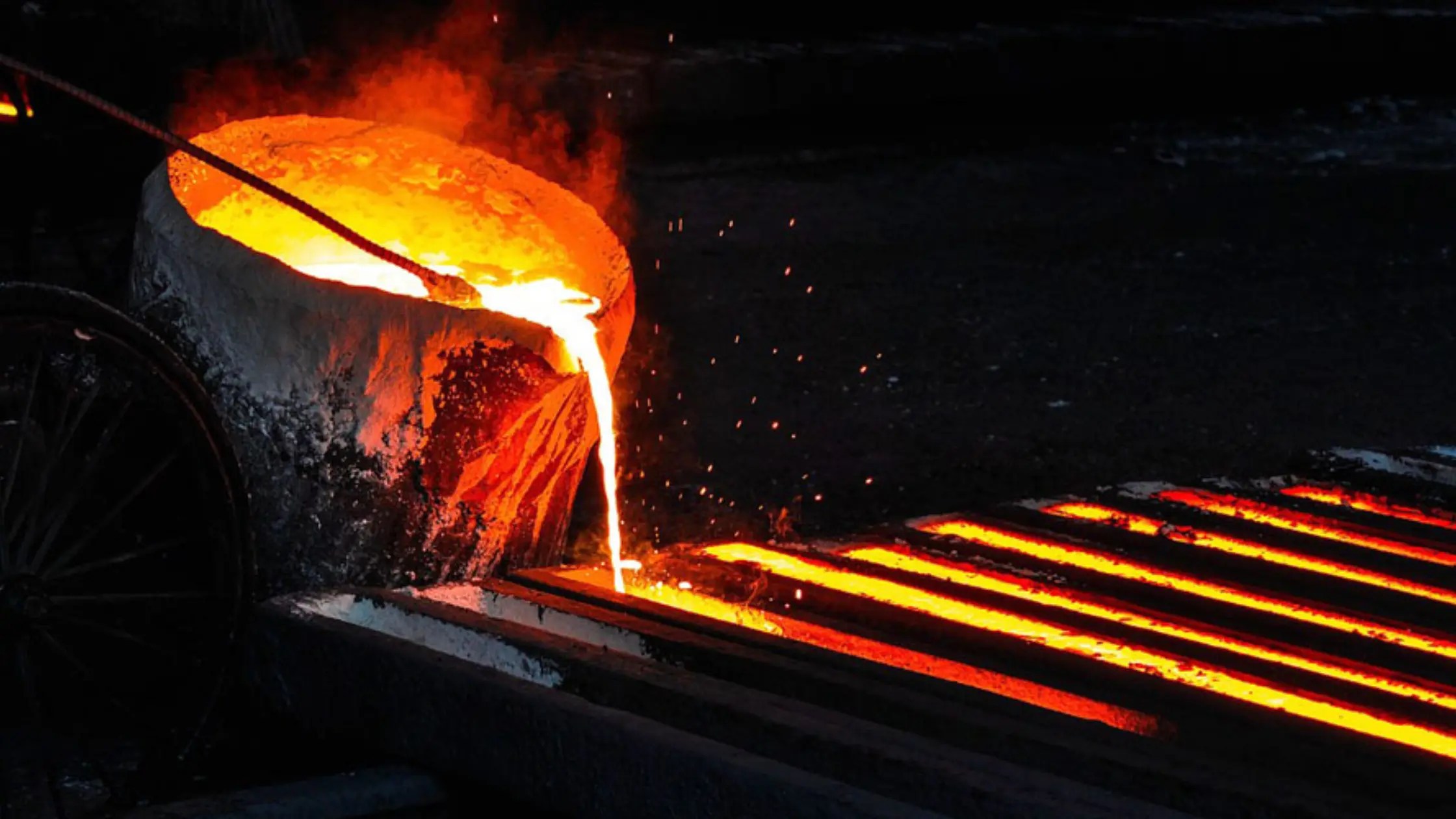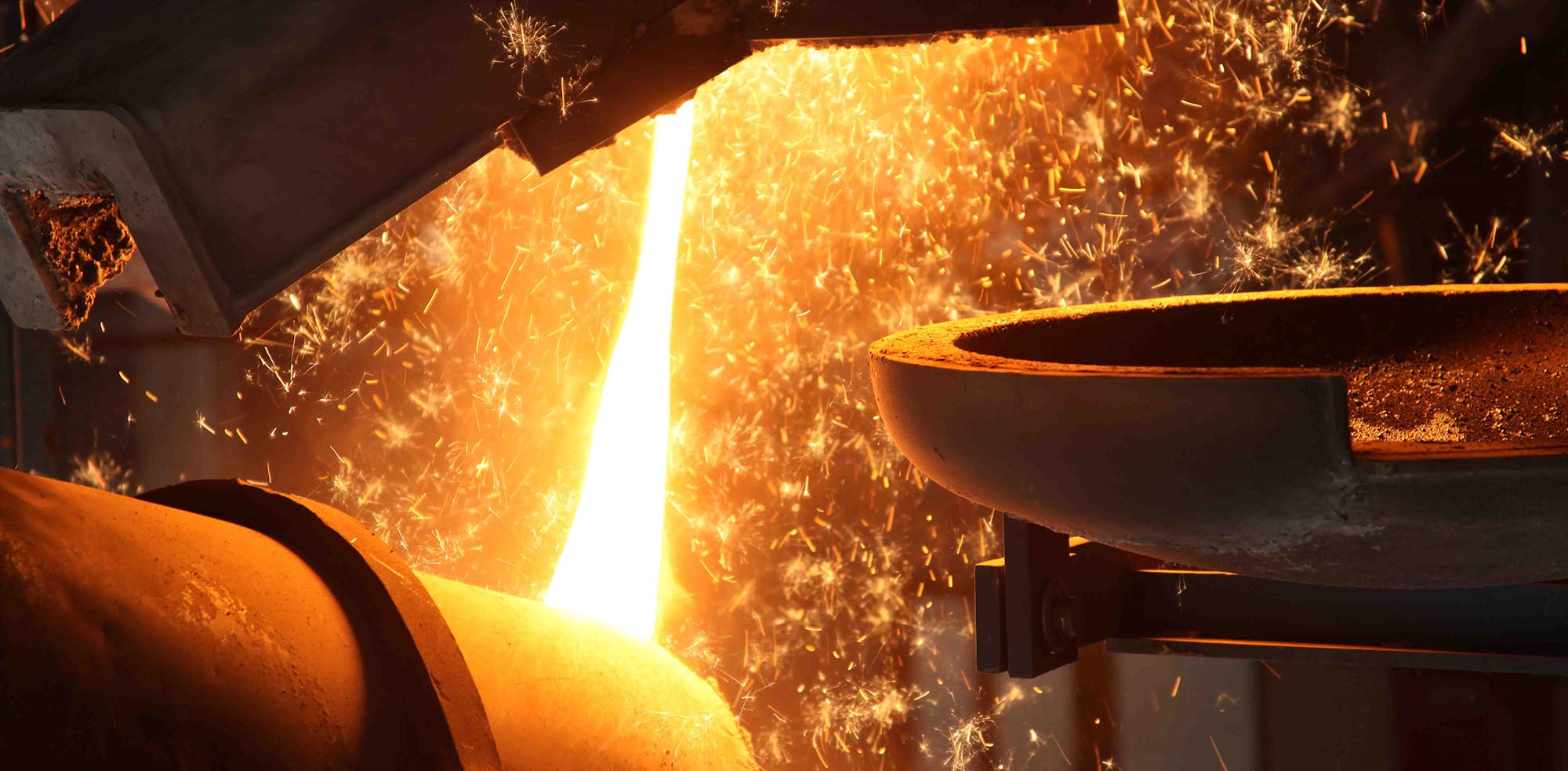The environmental and economic benefits of Aluminum Casting in manufacturing
Wiki Article
A Deep Study Steel Foundries: Secret Solutions and Their Effect On Production
Metal factories are essential to modern manufacturing, using important services that shape the manufacturing landscape. They focus on various casting processes, making certain precision and high quality in metal elements. The development of modern technology and lasting practices has additionally influenced their procedures. As sectors progressively depend on these foundries, comprehending their key solutions and the implications for production effectiveness comes to be essential. What difficulties and technologies exist ahead for this critical industry?Comprehending Metal Casting Processes
Metal casting processes transform fluid metal right into strong items with various methods, each customized to certain applications and materials. Amongst one of the most typical approaches are sand spreading, financial investment spreading, and die casting, each offering distinctive benefits. Sand spreading uses a mold and mildew made from sand, allowing the manufacturing of huge parts at a reasonably affordable. Investment casting, on the various other hand, includes creating a wax pattern that is covered in ceramic, yielding highly in-depth and complex shapes. Pass away casting uses high pressure to compel liquified steel right into a mold, which is suitable for automation of tiny, precise elements. These processes allow for a variety of steels to be used, consisting of light weight aluminum, steel, and bronze, accommodating diverse commercial requirements. The option of an ideal spreading method depends on factors such as needed tolerances, production volume, and material residential or commercial properties, influencing the general effectiveness and performance of the end items.The Importance of Precision Spreading
Accuracy spreading plays an essential role in producing components that require high precision and intricate details. This method, commonly described as investment spreading, allows for limited resistances and intricate geometries, making it essential in sectors such as aerospace, vehicle, and medical gadgets. By utilizing wax patterns that are covered with a ceramic shell, accuracy casting enables the production of get rid of smooth surfaces and minimal finishing needs.
Alloy Development and Product Option
In the domain name of metal foundries, alloy development and product choice are essential variables influencing the performance and durability of actors components. The option of alloy straight impacts mechanical homes, such as ductility, rust, and toughness resistance, important for conference specific application requirements. Foundries commonly engage in substantial study and testing to optimize alloy make-ups, tailoring them to the unique demands of numerous industries, including vehicle, aerospace, and building and construction.Material choice also entails examining variables like manufacturability, expense, and schedule, ensuring that the selected alloy straightens with production abilities and budget restrictions. Advanced simulation tools and logical techniques are utilized to forecast the behavior of various alloys under varying problems, offering useful insights for designers. Ultimately, effective alloy growth and product option enable shops to generate high-quality components that enhance functional effectiveness and reliability in their desired applications.
Ingenious Molding Techniques
Transforming the manufacturing process, innovative molding methods play a crucial duty in improving the effectiveness and quality of cast elements in steel shops. Strategies such as 3D printing and vacuum molding have actually become game changers, permitting detailed layouts and decreased lead times. These methods enable factories to produce molds with complex geometries that typical strategies typically struggle to accomplish.In addition, making use of advanced products for molds, such as composite resins, improves resilience and minimizes wear, bring about longer manufacturing runs. Fast prototyping further permits fast versions, promoting much faster development cycles and making it possible for makers to react even more swiftly to market needs.
In addition, automation in molding processes improves procedures, reducing human mistake and raising throughput. By incorporating these cutting-edge methods, steel shops can maximize their production abilities, ultimately resulting in better spreadings and enhanced total efficiency in the affordable production landscape.
Quality Assurance in Steel Foundries
Quality control in metal shops is important for ensuring the integrity and efficiency of cast items. It includes various evaluation methods and requirements, in addition to defect discovery techniques to determine possible problems early in the production procedure. In addition, durable quality control procedures are crucial for maintaining consistency and conference market needs.Examination Techniques and Criteria
Assuring the honesty of steel spreadings needs rigorous evaluation techniques and adherence to established criteria. Metal shops carry out numerous assessment techniques to evaluate the top quality of actors products, consisting of aesthetic inspections, dimensional checks, and non-destructive screening (NDT) These strategies assist to identify possible defects early in the production process. Standards such as ASTM and ISO provide standards for appropriate quality degrees and screening procedures, guaranteeing that factories maintain consistent high quality across their assembly line. Compliance with these requirements not only improves product dependability but also cultivates depend on amongst clients. By focusing on inspection techniques, metal foundries can minimize threats connected with problems and assurance that their spreadings meet customer requirements and industry requirements.Flaw Detection Approaches
Reliable problem discovery methods are essential to preserving high requirements in metal foundries. These methods incorporate a selection of techniques focused on identifying Aluminum Foundry flaws in spreadings prior to they are processed additionally. Usual approaches consist of visual inspection, which relies on the experienced eye of examiners to identify surface imperfections, and non-destructive testing (NDT) approaches such as ultrasonic testing and radiography, which reveal internal issues without damaging the product. Additionally, automated systems employing artificial intelligence and expert system are significantly utilized to analyze information and determine abnormalities. Each technique plays a crucial role in making sure the stability of the final product, reducing waste, and boosting total manufacturing effectiveness. By carrying out robust flaw detection processes, foundries can copyright their online reputation for quality.Quality Guarantee Processes
In steel factories, a comprehensive quality assurance process is vital for creating high-performing and reputable castings. This process includes various stages, including raw material assessment, in-process monitoring, and final product analysis. By carrying out standardized procedures, foundries can methodically identify and fix issues before they rise right into costly issues. Advanced techniques, such as non-destructive screening and metallurgical evaluation, are utilized to examine the integrity of castings. Paperwork and traceability are critical parts, making certain that each action of production meets rigorous quality requirements. Educating personnel in quality assurance practices additionally boosts the performance of these processes. Eventually, a durable quality control framework not just improves functional effectiveness but also enhances customer depend on and complete satisfaction in the shop's result.The Duty of Innovation in Foundry Procedures
Modern technology revolutionizes foundry operations by boosting effectiveness, precision, and security. Automation plays a crucial role, streamlining procedures such as mold making and metal pouring, consequently decreasing labor expenses and minimizing human error. Advanced computer-aided style (CAD) software program makes it possible for specific modeling of elements, helping with quicker adjustments and versions during manufacturing.In addition, the assimilation of robotics in tasks like material handling and ending up procedures raises productivity and guarantees regular high quality (Metal Foundry). Real-time tracking systems and data analytics offer important understandings into operational performance, permitting for prompt interventions and upkeep, which inevitably prolongs tools life-span

The fostering of 3D printing modern technology additionally enables rapid prototyping and personalized remedies, substantially reducing preparations. Additionally, sophisticated materials innovation enhances the buildings of alloys, improving spreading efficiency. To summarize, technological developments are necessary in maximizing foundry procedures, enabling suppliers to satisfy the increasing demands for high quality and effectiveness in the competitive steel sector.
Ecological Considerations in Steel Casting
Ecological factors to consider in metal spreading play a substantial role fit market techniques. Reliable waste management, advanced discharge control innovations, and the use of lasting products are vital for lowering the ecological impact of foundries. Resolving these aspects is important for promoting a more lasting future in steel manufacturing.
Waste Monitoring Practices
Effective waste management techniques are crucial in the steel casting industry to minimize environmental effects. Aluminum Foundry. Foundries generate numerous kinds of waste, including steel sand, scrap, and chemical deposits. Implementing recycling programs enables the repurposing of metal scrap, minimizing the requirement for virgin materials and lessening landfill contributions. Furthermore, foundries often make use of sand recovery processes, which recycle and recoup sand numerous times, thus decreasing waste generation. Appropriate disposal methods for hazardous materials, such as binding solvents and representatives, are important to prevent soil and water contamination. Employee training on waste partition and decrease methods can enhance overall performance and sustainability. Via these techniques, metal shops can considerably decrease their eco-friendly footprint while keeping production effectivenessEmission Control Technologies
As the steel spreading industry advances, the implementation of advanced emission control modern technologies becomes increasingly necessary for decreasing damaging contaminants released throughout manufacturing procedures. These innovations include different approaches, including electrostatic precipitators, scrubbers, and catalytic converters, which effectively record and reduce the effects of discharges prior to they go into the environment. By integrating such systems, shops can significantly decrease particle issue, unstable natural compounds, and various other harmful discharges. In addition, compliance with strict ecological regulations not only minimizes ecological effect yet likewise improves the market's credibility and operational effectiveness. The adoption of these modern technologies reflects a dedication to lasting techniques, making sure that steel spreading operations can meet the growing need while focusing on environmental health and wellness.Sustainable Materials Usage
Sustainable products use in metal casting plays an essential role in reducing the market's environmental impact. Shops are progressively adopting recycled metals, which substantially minimize the demand for virgin resources and reduced energy intake throughout the manufacturing process. Furthermore, the use of environment-friendly binders and additives boosts the sustainability of casting operations by reducing dangerous discharges and waste. Advancements in material science likewise permit the development of naturally degradable alternatives that do not compromise item quality. Moreover, shops are carrying out life-cycle analyses to assess the ecological impact of materials throughout their lifespan, promoting more liable sourcing and use. On the whole, these techniques add to a much more eco mindful and lasting steel spreading market, lining up with worldwide initiatives to minimize carbon impacts.Regularly Asked Questions
What Are the Main Kind of Metal Used in Factories?
Factories mostly use steels such as iron, magnesium, copper, and aluminum. These materials are picked for their unique residential or commercial properties, which influence the spreading procedure and the performance qualities of the last items produced.Exactly How Do Shops Guarantee Worker Security During Workflow?
Foundries assure employee security through rigorous training, proper equipment, ventilation systems, and adherence to safety and security policies. Normal assessments, individual protective gear, and emergency situation protocols further improve a safe workplace for employees participated in steel manufacturing.What Is the Common Preparation for Casting Production?
The common preparation for casting manufacturing varies, typically ranging from a few weeks to numerous months. Elements influencing this timeline include complexity of the style, material accessibility, and the foundry's production ability and organizing.Just How Do Foundries Handle Waste and Recycling Processes?
Shops manage waste and recycling by implementing processes such as metal recovery, sand recycling, and proper disposal of harmful products, thereby decreasing environmental effect and advertising sustainability in their procedures while adhering to governing standards.What Industries Many Frequently Make Use Of Steel Factory Services?
Steel foundry services are primarily made use of in sectors such as automobile, equipment, building and construction, and aerospace production. These markets rely upon factories for creating cast metal elements crucial for various applications and item advancement.Metal foundries are important to contemporary production, providing necessary services that shape the manufacturing landscape. Steel spreading procedures change liquid steel into solid objects via numerous methods, each tailored to details applications and products. As modern technology advances, the value of precision casting proceeds to expand, driving advancement and efficiency in steel foundry operations. Reinventing the manufacturing procedure, innovative molding strategies play an essential duty in enhancing the efficiency and quality of actors components in metal factories. In metal factories, a complete top quality assurance procedure is important for producing high-performing and trustworthy castings.
Report this wiki page